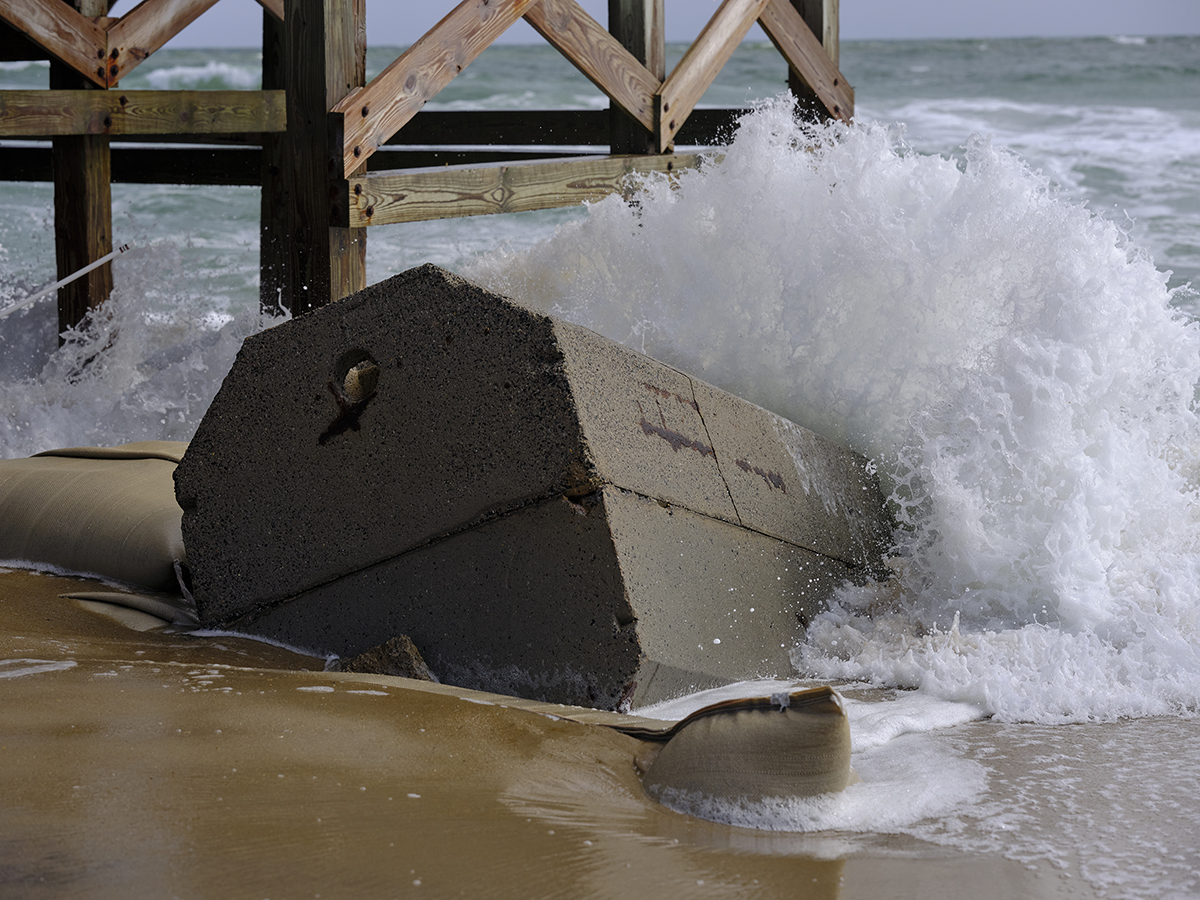
CHAPEL HILL — The torpidity of government bureaucracy could be illustrated with the picture of abandoned wooden houses on a Cape Hatteras National Seashore beach, akimbo in the surf, beaten, weathered and left to the mercy of the ocean.
After more than a year since the first of five houses fell into the surf without significant action to mitigate the continued threat to the public resources at the eroded shoreline in Rodanthe, the Southern Environmental Law Center, a nonprofit environmental legal advocacy group, has sent letters on behalf of the North Carolina Coastal Federation to two relevant government agencies pressing for enforcement of existing law. The Coastal Federation publishes Coastal Review.
Supporter Spotlight
“Allowing the cycle of collapse and contamination to continue contradicts various laws and policies that govern the National Park Service’s management of its units, including the Organic Act, the Service’s mission statement, several federal regulations, and the National Park Service Management Policies 2006,” the group wrote in a letter dated May 25 to seashore superintendent David Hallac.
Related: Climate peril, insurance, sand costs: No easy fix in Rodanthe
In addition to the hazard created by construction debris scattered into the ocean and over miles of beach, the law center said that destroyed waste treatment structures can leak untreated human waste.
“NPS must act immediately to abate the exposed or abandoned septic tanks that can endanger the health of the public and the environment in Rodanthe before thousands of beachgoers are exposed to raw sewage,” the letter said.
At the same time, the law center sent a similar letter to Secretary Kody Kinsley at the North Carolina Department of Health and Human Services, asking the department to use its authorities to address the imminent dangers and to enforce its existing septic regulations to protect the public.
Supporter Spotlight
“This untenable situation poses unacceptable health and safety risks to residents of Rodanthe and visitors alike, and the Department of Health and Human Services has an obligation to safeguard the public health and welfare of all persons in the affected area,” the center wrote.
Julie Furr Youngman, senior attorney at the law center, said in an email that the issues are complex and both agencies have committed to respond to the concerns.
“We (the law center and Coastal Federation) have already been working with the National Park Service and the state Division of Coastal Management in particular to grapple with the problem of collapsing houses and failing septic systems at the coast, to understand the causes, and to brainstorm solutions,” Youngman wrote. “We look forward to working with DHHS too, as well as other government bodies with responsibilities for safeguarding people at the coast.”
A spokesperson with the state Department of Health and Human Services said in an email that the department remains available to assist Dare County to address damaged septic systems and correct the issues as quickly as possible.
“(The department’s) mission is to provide essential services to improve the health, safety and well-being of all North Carolinians, including working with local health departments to address any impact on health from septic systems,” the spokesperson wrote. “NCDHHS is aware of the septic systems that are damaged and/or malfunctioning in Rodanthe, and Dare County’s Health Department has taken action to address the issues.”
The National Park Service is also continuing to work with the state and local officials to address the situation, Hallac, the Cape Hatteras park superintendent, told Coastal Review.
“We appreciate the time that SELC took to analyze the challenges,” Hallac said, “and we look forward to reviewing their letter in detail.”







